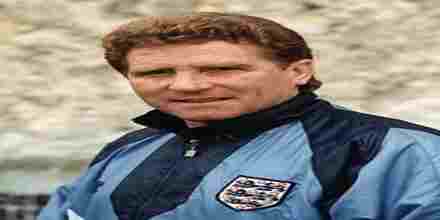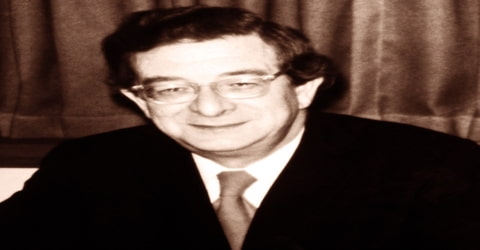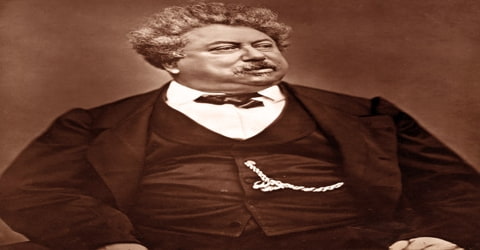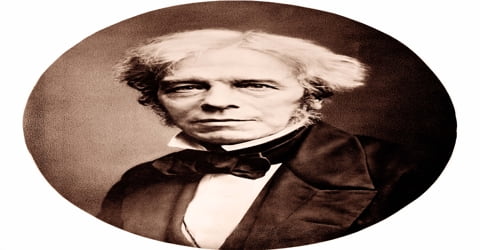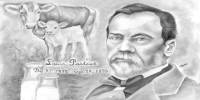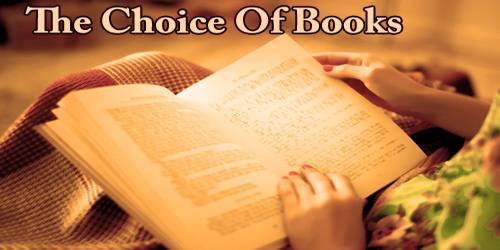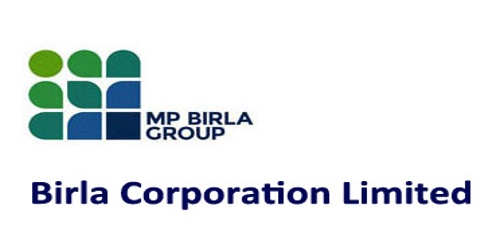Alan James Ball – Soccer Player (1945–2007)
Full name: Alan James Ball
Date of birth: 12 May 1945
Place of birth: Farnworth, Lancashire, England
Date of death: 25 April 2007 (aged 61)
Place of death: Warsash, Hampshire, England
Height: 5 ft 6 in (1.68 m)
Playing position: Midfielder
Early Life
Alan James Ball was born on May 12, 1945, in Farnworth, Lancashire, England. He was an British association football (soccer) player and manager who represented his country in 72 matches over a 10-year period (1965–1975) and was, at age 21, the youngest player on the team that won the Fédération Internationale de Football Association (FIFA) World Cup for England in 1966. The dynamic red-headed midfielder stood only 1.68-m (5-ft 6-in) tall and was initially thought to be too small to be a successful footballer. He died on April 25, 2007, in Warsash, Hampshire, England.
He was the youngest member of England’s 1966 World Cup winning team and played for various clubs, scoring more than 180 league goals in a career spanning 22 years.
His playing career also included a then national record £220,000 transfer from Everton to Arsenal at the end of 1971. After retiring as a player, he had a 15-year career as a manager which included spells in the top flight of English football with Portsmouth, Southampton and Manchester City.
He also managed several teams between 1980 and 1999. Ball was appointed MBE in 2000.
Personal Life
Alan James Ball was born on May 12, 1945, in Farnworth, Lancashire, England. He was educated at Farnworth Grammar School. Ball’s father, Alan Sr., died in a car crash in Cyprus in January 1982.
Ball released his second autobiography, Playing Extra Time, in 2004 which received much critical acclaim.[citation needed] Aside from his highs and lows in football, it also candidly detailed his private struggle as a family man after his wife and daughter were both diagnosed with cancer. Lesley, his wife of 37 years, died on 16 May 2004, aged 57, after a three-year battle against ovarian cancer. He and Lesley, who had been together for five years prior to their marriage, had three children together; Mandy (born 1969), Keely (born 1971) and Jimmy (born 1976). They also had three grandchildren.
He had remained in the family home in Warsash, and from mid-2005, Ball had had an ongoing relationship with childhood friend Valerie Beech, ex-wife of former Bolton player Harry Beech.
In April 2004, while his wife was ill in hospital and weeks from death, Ball appeared for Testwood Baptist Church in the Roger Frapwell Testimonial Match at the BAT ground, Totton, near Southampton, wearing the number 7 shirt as he did in the 1966 World Cup triumph. Also in that team were former Saints manager Dave Merrington and ex-Saints defender Francis Benali. The proceeds from the game were donated to local charity SCRATCH.
In May 2005, Ball put his World Cup winner’s medal and commemorative tournament cap up for auction to raise money for his family. They were sold for £140,000.
Coaching and Playing Career
Ball started his footballing career whilst still a schoolboy, playing for Ashton United, the team his father managed, amongst the hurly burly of the Lancashire Combination.
Ball was given a trial at Blackpool in September 1961 and was immediately signed up as an apprentice. He turned professional in May 1962, making his Football League debut on 18 August 1962 against Liverpool at Anfield in a 2–1 victory. At age 17 years and 98 days, he became Blackpool’s youngest League debutant. On 21 November 1964, Ball scored his first hat-trick as a professional, in a 3–3 draw with Fulham at Craven Cottage.
His performances in the 1966 World Cup winning England team attracted the attention of a number of clubs bigger than Blackpool, Ball eventually being sold to Everton for a fee of £112,000 in August 1966.
Everton reached the 1968 FA Cup Final, but lost to West Bromwich Albion and were knocked out by Manchester City in the semi-finals the following year. Ball was instrumental in the team which won his first and only major domestic honour in the game as Everton took the 1969–70 Football League Championship title, seeing off a late challenge from Leeds United.
Back at club level, Everton again capitulated in the semi-finals of the FA Cup in 1971, with Ball’s opening goal overhauled by two strikes from Merseyside rivals Liverpool, who went on to lose the final to “double”-chasing Arsenal. Ball later picked up his 50th England cap in a match against Northern Ireland.
On 22 December 1971, Arsenal paid a record fee of £220,000 to take Ball to Highbury. He was 26 years of age and at his peak for both form and fitness when he joined Arsenal; he made his debut against Nottingham Forest on 27 December 1971. However, Arsenal could not defend their League title in 1971–1972 and also lost their grasp on the FA Cup when Leeds United beat them 1–0 in the centenary final at Wembley.
Ball had continued to play for Arsenal through all this time, as a near-constant member of the first team at first, including 50 appearances in 1972–1973.
In April 1974 Ball broke his leg, resulting in his missing the start of the 1974–1975 season, in which Arsenal finished 16th. Ball also missed the start of the 1975–1976 season after an injury in the pre-season friendly at Crewe Alexandra, Arsenal subsequently finished in 17th place that season.
Now aged 31, Ball continued to play for Arsenal until December 1976, when he was sold to Southampton for a fee of £60,000. In total he made 217 appearances for the Gunners, scoring 52 goals.
Ball’s move to Southampton completed a coincidental symmetry to the three transfers in Ball’s career – he had arrived at each club – Everton, Arsenal and Southampton – in 1966, 1971 and 1976 respectively, when each were holders of the FA Cup.
Ball went to play in the decade-old North American Soccer League, joining the Philadelphia Fury as a player in May 1978. He also walked away with the 1979 Playoff MVP award, scoring seven goals in nine games.
He returned to Britain in February 1980, as player-manager of his first club, Blackpool, after honouring the remainder of his contract with Vancouver. The 1980–1981 season began in similar fashion, with Blackpool struggling near the foot of the table.
After an FA Cup first-round win over Fylde Coast neighbours Fleetwood Town on 22 November, Ball publicly criticised the fans for allegedly not wanting the team to succeed as much as he did. Eventually it all became too much for manager and club, and shortly after a defeat at Brentford on 28 February 1981, Ball’s contract was terminated with immediate effect and the mutual love affair had ended in ruins. Blackpool were relegated at the end of the season. In March 2005, Ball finally commented on his time as Blackpool manager.
In March 1981, Ball was tempted back to Southampton to play alongside fellow veterans and former England team-mates Mick Channon and Kevin Keegan. He left Southampton in October 1982 to play for Hong Kong side Eastern Athletic, before joining Bristol Rovers in January 1983, where he remained until his retirement the following season. When Ball finally retired from playing, he had played 975 competitive games in 21 years.
Despite being in a struggling Blackpool team, Ball’s industry, stamina and distribution were noticed by England manager Alf Ramsey, who gave him his international debut on 9 May 1965 in a 1–1 draw with Yugoslavia in Belgrade, three days before his twentieth birthday.
Ball became a useful tool for Ramsey to use – able to play conventionally wide or in the centre but still in possession of the energy to help out his defence when required.
Ball was the youngest member of the squad of 22 selected by Ramsey for the tournament, aged only 21. Though England as a team emerged collectively heroic from the tournament, Ball was one of many players regarded as an individual success, especially as he was one of the more inexperienced charges with no proven record at the very highest level. The 98,000 crowd at Wembley witnessed a magnificent personal performance from Ball.
Ball was one of the first names on Ramsey’s England team-sheet and he was in the squad which travelled as defending champions to the altitude of Mexico for the 1970 World Cup.
In a qualifier for the 1974 World Cup against Poland in Chorzów on 6 June 1973, Ball became only the second England player to be sent off in a full international, after grabbing Lesław Ćmikiewicz by the throat and kneeing him in the groin after a player scuffle. As a result, he missed the return game at Wembley Stadium which became one of the most notorious in English football history – a 1–1 draw in which England were kept out largely thanks to Polish goalkeeper Jan Tomaszewski. England failed to qualify for the World Cup as a result.
Aged 30, Ball’s international career had ended suddenly and acrimoniously after 72 appearances and eight goals. He was, however, the last of the 1966 World Cup winning team (although not the squad, as Ian Callaghan was unexpectedly called up by Ron Greenwood in 1977) to leave the international stage.
Ball resumed his managerial career in May 1984 with Portsmouth and was a huge success. They just missed out on promotion to the First Division in his first two seasons as manager, and he finally guided them to the top flight in 1987.
In July 1991 he was appointed as manager of Third Division Exeter City. Between February and August 1992 he also worked as a coach for the England team under Graham Taylor, including the 1992 European Championships, which were not a success for England, as they failed to progress beyond the group stages of the tournament in Sweden.
In January 1994, Ball left Exeter to take over the reins at Southampton, replacing the unpopular Ian Branfoot. At the start of the following season, 1994–95, Ball signed goalkeeper Bruce Grobbelaar but more significantly signed Le Tissier on a new 3-year deal.
Ball was tempted away in July 1995 to become Manchester City’s manager under the ownership of former England team-mate Francis Lee. His departure from The Dell was rather acrimonious and for some years afterwards, Ball’s return visits to the Dell were greeted by abuse from some sections of the Saints’ fans.
Ball gave Paul Walsh, who had scored 15 league and cup goals for City in 1994–95, and cash, to Portsmouth in exchange for Gerry Creaney, who scored 4 goals for City in 1995–96. But a terrible start to the 1995–96 season saw City endure eight defeats and not win a single game from their opening 11 games. November saw a turnaround in fortunes when City finally managed to win a league game at the 12th attempt and follow this up with a draw and two wins which saw them end the month outside the relegation zone and Ball was elected Premier League Manager of the Month for November 1995.
In January 1998, Ball was contacted by Brian Howe, who informed him he was to make a takeover bid for the club and that he would like Ball to manage the club. This led to Ball returning to Portsmouth as manager in February 1998; however the take-over never came about. When he was appointed Pompey were several points adrift at the bottom of the table and enduring a near-fatal financial crisis, going into administration for over a year.
Senior Career
Years Team Apps (Gls)
1960–1961 Ashton United 7 (1)
1962–1966 Blackpool 116 (40)
1966–1971 Everton 208 (66)
1971–1976 Arsenal 177 (45)
1976 Hellenic (loan) 4 (?)
1976–1980 Southampton 132 (9)
1978–1979 Philadelphia Fury (loan) 33 (5)
1979–1980 Vancouver Whitecaps 31 (10)
1980–1981 Blackpool 30 (5)
1981–1983 Southampton 63 (2)
1982 Floreat Athena (loan) 3 (2)
1982–1983 Eastern AA 12 (?)
1983 Bristol Rovers 17 (2)
Total 833 (187+)
Death
At the aged of 61, Ball died in the early hours of 25 April 2007 at his home in Warsash, Hampshire, following a heart attack. He suffered the fatal heart attack while attempting to put out a blaze in his garden that had started when a bonfire – on which he had earlier been burning garden waste – re-ignited and spread to a nearby fence. His funeral was held in Winchester Cathedral on 3 May 2007. Many of Ball’s former football colleagues were in attendance, and the flat cap that he became famous for wearing was placed on top of his coffin. Ball is the second of the 1966 World Cup winning team to die, the first being captain Bobby Moore in 1993.
The Alan Ball Memorial Cup, a match between two squads of former international players, in the shape of “England vs the World”, was played at stadium:mk in Milton Keynes on Sunday 29 July 2007, with proceeds going towards the Bobby Moore Fund for Cancer Research UK and the Warwickshire and Northamptonshire Air Ambulance Service.
Honours
As a player:
England
- World Cup: 1966
Everton
- Football League Division 1 championship: 1969–70
- FA Cup finalist: 1968
Arsenal
- Football League Division 1 runner-up: 1972–73
- FA Cup finalist: 1972
Southampton
- Football League Division 2 runner-up: 1977–78
- League Cup finalist: 1979
Vancouver
- NASL Soccer Bowl champion: 1979
- NASL National Conference champion: 1979
- NASL Western Division champion: 1979
Individual honours
In 2000, Ball and four other members of the World Cup winning team were awarded the MBE for their services to football. Ball, along with Roger Hunt, Nobby Stiles, Ray Wilson and George Cohen, had to wait more than three decades for official recognition of their achievements. In 2003 Ball was inducted into the English Football Hall of Fame in recognition of his talents.
In 2011, the Canadian Soccer Hall of Fame inducted the 1979 NASL champion Vancouver Whitecaps team. Ball was a vital member of this squad. He was also named a 2nd Team NASL All-Star (Best XI) for that season, and the MVP of the 1979 NASL playoffs.
Blackpool F.C. Hall of Fame
Ball was inducted into the Hall of Fame at Bloomfield Road, when it was officially opened by former Blackpool player Jimmy Armfield in April 2006. Organised by the Blackpool Supporters Association, Blackpool fans around the world voted on their all-time heroes. Five players from each decade are inducted; Ball is in the 1960s.
Everton F.C. Hall of Fame
Ball was inducted into Everton’s Hall of fame “Everton Giants” in 2001, and at the start of the 2003–04 season, as part of the club’s official celebration of their 125th anniversary, was elected by fans as a member of the greatest ever team.
As a manager:
Portsmouth
- Football League Division 2 runner-up: 1986–87
